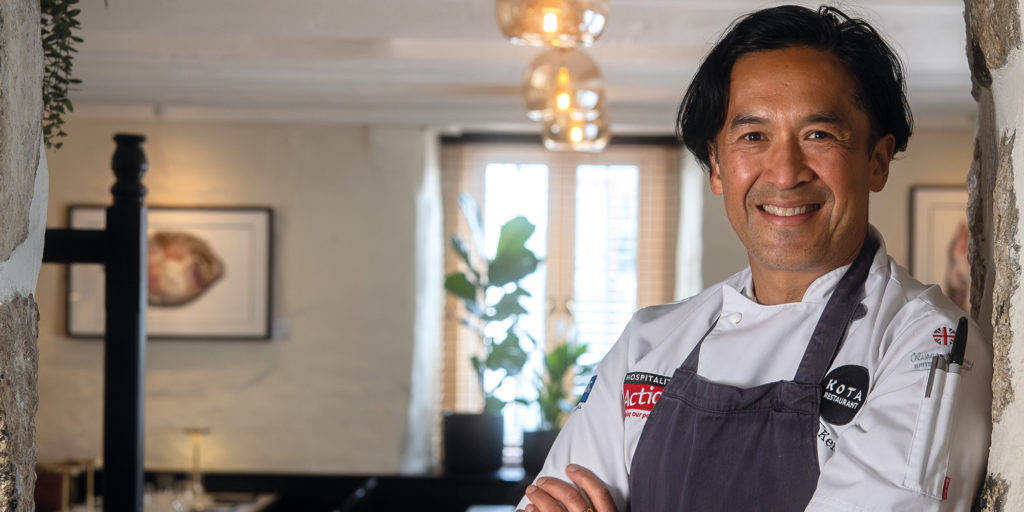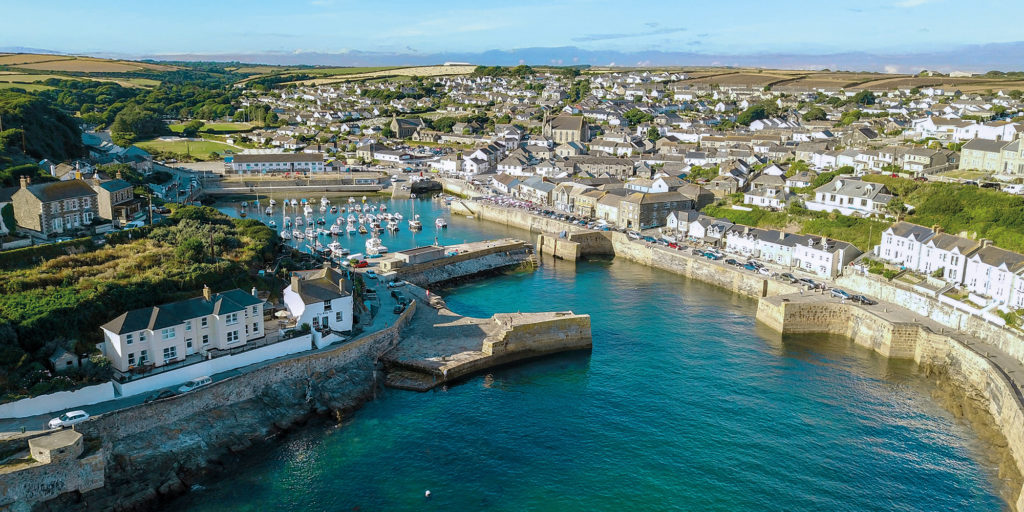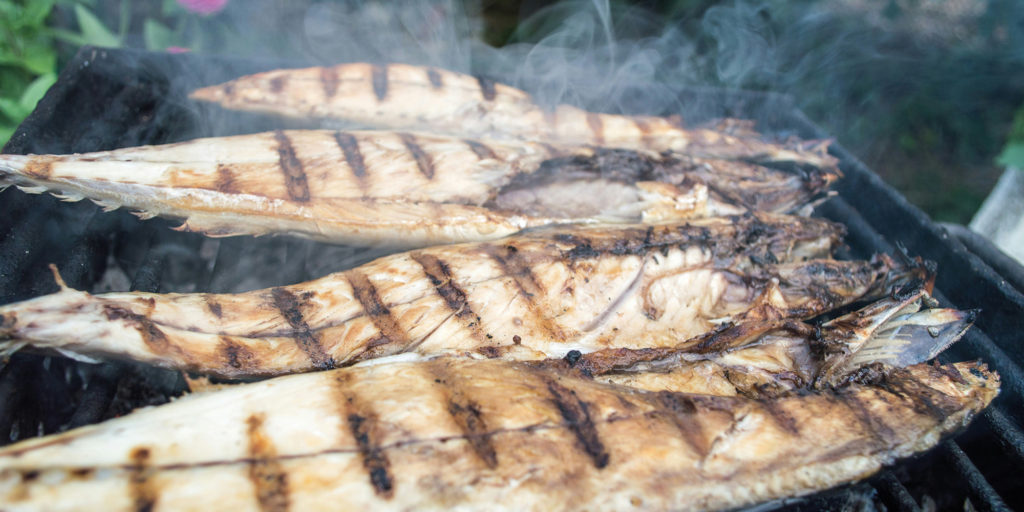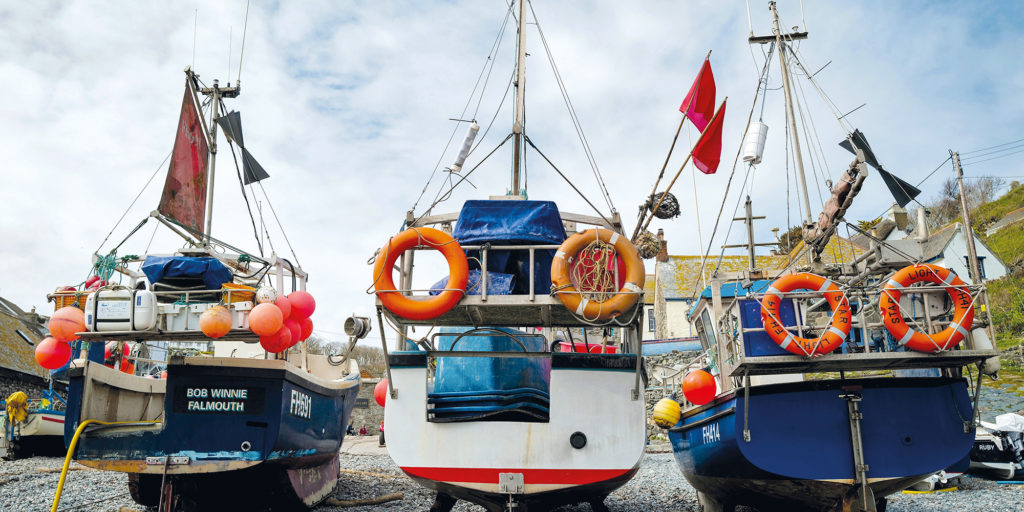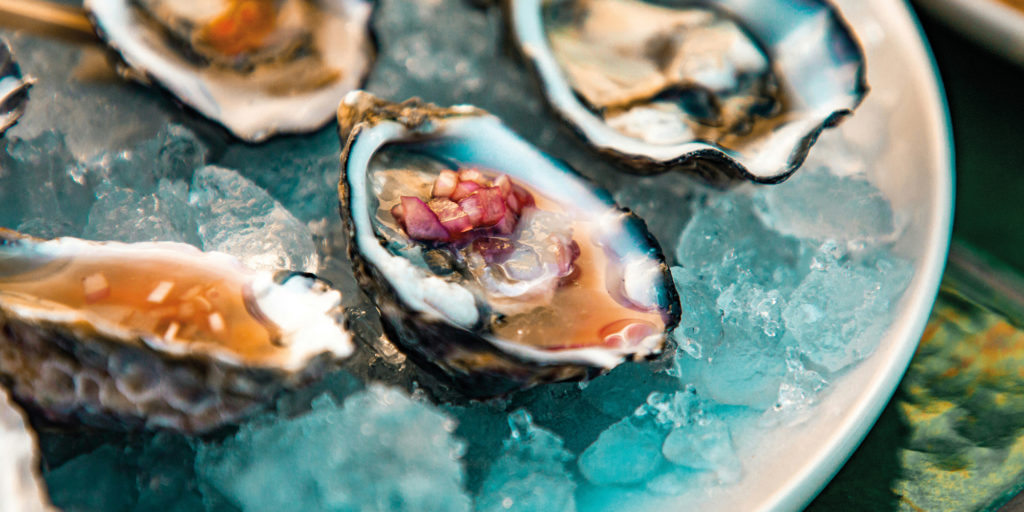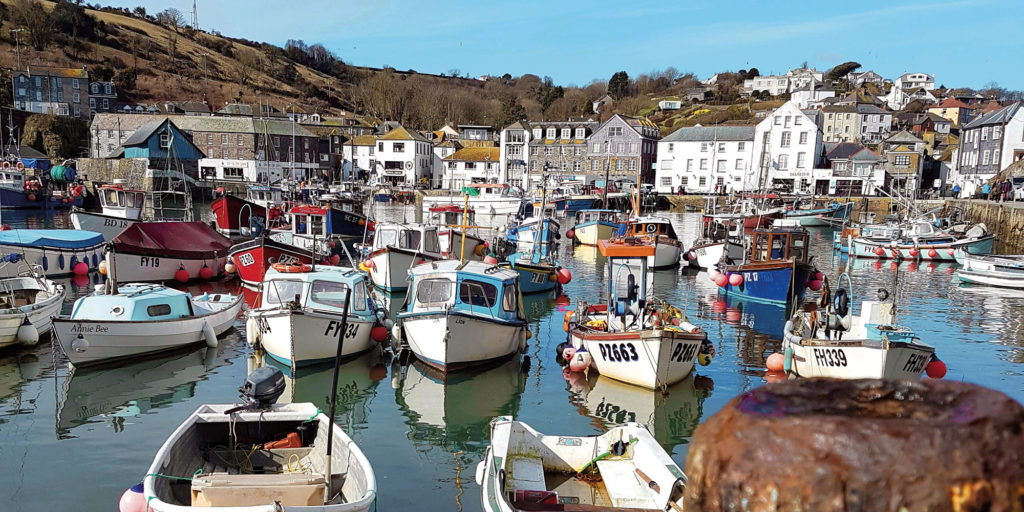

From tide to table
The mighty Atlantic Ocean not only shapes our coastline, it writes our menus, sustains our communities and connects us to centuries of maritime heritage.
There’s a particular kind of magic to Cornwall’s coastline. We always think about how beautiful the Cornish sea is, however it is also a source of one of our biggest industries. Cornwall’s waters are some of the richest in the UK, warmed by the Gulf Stream and blessed with an abundance of species. The diversity of our catch isn’t just an accident of geography, it’s a result of generations of fishing knowledge and a careful respect for seasonality. That’s something any chef
worth their salt here knows: the sea decides the menu.
While tourists often think first of sandy beaches and cream teas, the beating heart of many Cornish towns is still the harbour. Towns and villages such as Porthleven, Newlyn, Looe, Mevagissey, St Ives, Falmouth, Cadgwith, Port Isaac and Padstow, all have fleets that head out daily, bringing in everything from sardines (pilchards, as the locals still call them), mackerel and gurnard, to the more luxurious line caught sea bass, John Dory, monkfish, Dover soles, turbot and brill. Lobster, crawfish and Cornish crab abound, as does shellfish such as oysters, mussels, clams and razor clams – caught in pots, gathered or, in the case of scallops, hand dived. It is a chef’s dream to have such fantastic produce on our doorstep.
For chefs in Cornwall, these communities aren’t just suppliers, they’re collaborators. A fisherman might call ahead to say the crab pots are yielding particularly good browns this week, or that the mackerel are running fat and full-flavoured after a season of plentiful feed. This direct relationship means the food that arrives on the plate often feels like a continuation of the work done at sea.
One of the greatest strengths of Cornish seafood cookery is its seasonality. Spring might see the arrival of spider crab, sweet and delicate, perfect in salads or lightly dressed with lemon and mayonnaise. Early summer brings mackerel in abundance, rich and oily, ideal for grilling over coals or curing into a tangy escabeche. Autumn is the time for plump scallops and winter rewards the patient with meaty monkfish and firm, cold-water cod. This seasonal ebb and flow keeps menus alive. You won’t see lobster in February unless it’s been responsibly stored; you won’t find fresh sardines in mid-winter. There’s a trust in letting the natural cycle dictate what’s cooked – a philosophy that not only yields better flavour but also supports sustainable fishing.
Cornish seafood is so good that it rarely needs complicated treatment. A simple whole plaice, pan-fried in a little butter with samphire and a squeeze of lemon, can be as transcendent as any fine-dining plate. That’s not to say we don’t enjoy creativity; our chefs have taken traditional dishes and given them modern twists. Think mussels with yellow curry mouclade and apple, smoked mackerel pâté with rhubarb, and pickled cucumber, or oysters wrapped in potato spaghetti with dashi mayo and furikake spices. Many recipes here are built on balance, respecting the natural sweetness of scallops, the briny punch of clams, or the robust depth of hake. A fisherman’s stew (cioppino or bouillabaisse in other corners of the world) might include a jumble of whatever’s come in that day, simmered gently with saffron, garlic, and fennel. In Cornwall, the sea writes its own recipes; we just interpret them.
Over the last decade, shellfish has become something of a star in Cornwall’s food story. The once-overlooked spider crab is now recognised for its delicate flavour, rivaling more expensive crustaceans. Mussel farms in the Fal and Helford estuaries produce plump, briny mussels that steam open into bowls of garlicky broth, perfect for mopping up with crusty bread. Oysters, too, have returned to the spotlight, especially with the revival of the Fal Oyster Festival. Grown in some of the cleanest waters in the country, these oysters have a unique minerality giving them a taste of the river as much as the sea. Served raw with just a dash of shallot vinegar, they’re pure Cornish luxury. Also, a firm favourite is a Porthilly oyster; these Pacific oysters are particularly delicious.
Modern Cornish seafood cookery can’t ignore sustainability. The seas are a finite resource and the future of our fishing communities depends on responsible practice. Many of our fishermen work under strict quotas, use selective gear to avoid bycatch, and fish in ways that preserve marine habitats. Restaurants are increasingly transparent about where their fish comes from, often naming the boat, the skipper, and the method of catch on the menu. We’ve also embraced under-utilised species. Instead of always reaching for bass or cod, chefs are turning to gurnard, whiting, and ling – delicious fish that take the pressure off more vulnerable stocks. This openness to variety has expanded the Cornish palate and kept menus interesting.
If you visit Cornwall and order seafood, there’s a good chance it was landed within hours of you eating it. That immediacy is part of the magic. The morning’s catch might be served for lunch, still firm and sweet from the cold Atlantic. Even home cooks benefit as fishmongers in towns and villages are often stocked with whatever has been landed
that day and it’s not uncommon to see
locals buying a couple of mackerel to grill
for supper.
In the end, Cornwall’s relationship with seafood is as much about identity as it is about flavour. It’s about knowing that when you taste a spoonful of fish stew, you’re tasting the result of centuries of knowledge, hard work, and respect for the sea. It’s about seeing the boats at anchor and feeling the quiet pride of a community whose livelihood depends on those waters. Here, seafood isn’t a luxury, it’s a way of life. And as long as the tide keeps turning, Cornwall will keep serving up the best the sea has to offer: fresh, honest, and utterly unforgettable.
KOTA & Kota Kai
Harbour Head, Porthleven TR13 9JY
01326 562407 / 01326 727707
KotaKaiBarKitchen
KotaRestaurant
www.kotarestaurant.co.uk
www.kotakai.co.uk
